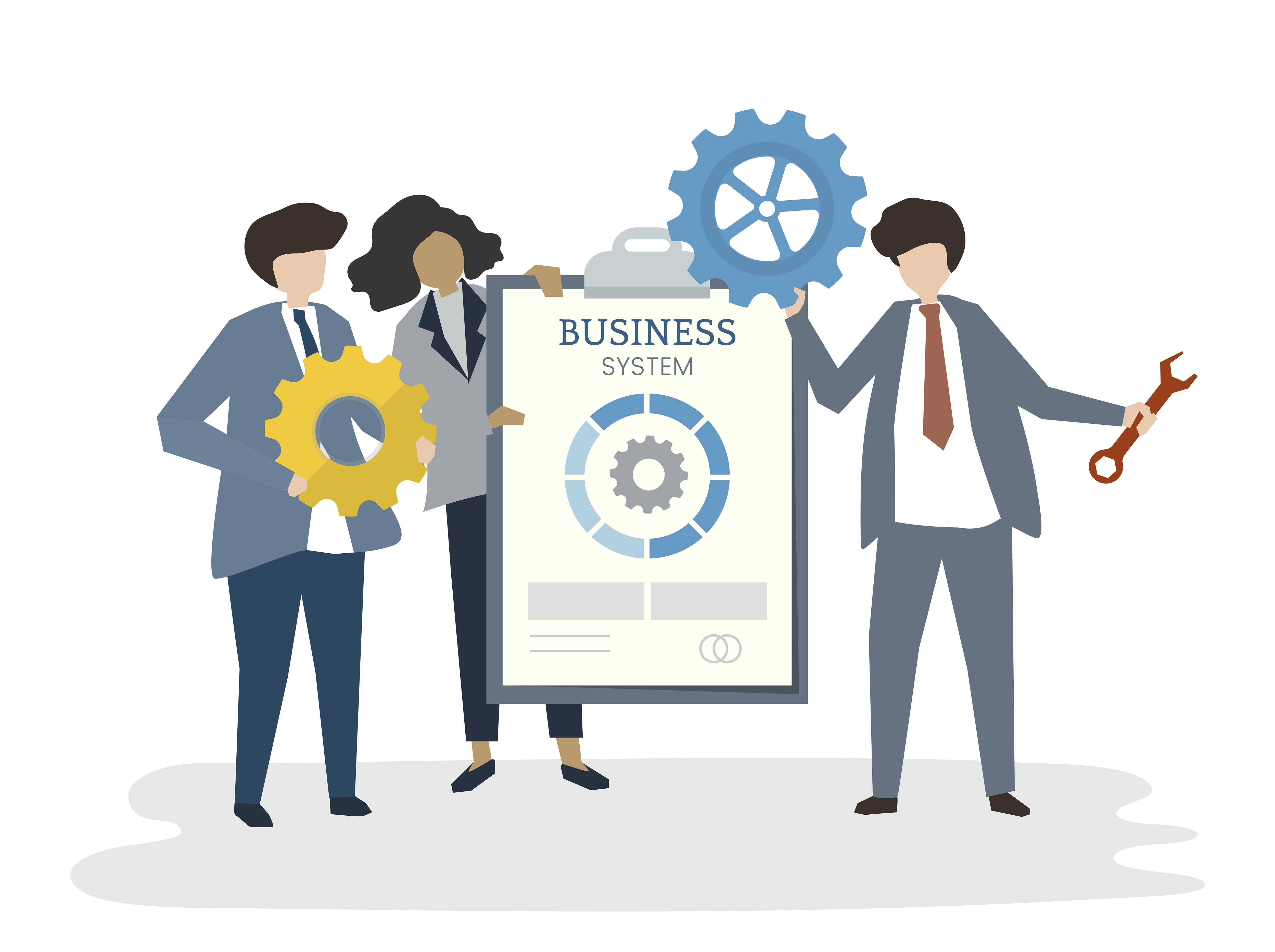Do you know that streamlining business operations proves cost-effective? For instance, MSMEs that use the Internet lowered their costs by about 22% to source raw materials, manage inventory, and achieve higher productivity.
Operations are the daily activities businesses undertake — from general administrative activities such as making salary payments to ordering raw materials required for your businesses. For instance, operating activities might include the following:
- Buying raw materials from suppliers
- Making arrangements for transport service providers to transport the materials to the factory, factory to warehouses, and warehouses to retail outlets
- Paying wages and salaries
- Administrative work related to compliance such as paying taxes
- Paying rent
- Preparing necessary documents
Let’s look at it this way:
Most MSMEs provide customers with either a product or a service. Offering top-notch services helps you draw in customers, builds customer loyalty, increases revenue, and provides you with a competitive edge in the industry. Undoubtedly, a vital component of every business is ensuring that customers get quality products that are worth their money.
Simply put, operations management is controlling every aspect of your business operations to achieve objectives, increase productivity, and maximize business performance. Operations put together all pertinent departments to share their knowledge and guarantee that efforts are aligned with your business goals.
Role of Operation Management
From managing projects to final product development, operations management includes a variety of functions. Starting with strategic planning, your business requires long-term objectives and goals. As a part of operations, strategic planning for MSMEs involves capacity planning, allocation, selecting products and services, and the development process. Here, capacity planning determines how many goods or services a business can distribute or sell in a specific time frame.
With growing competition, designing quality products and services is crucial for MSMEs in Nepal. Thus, as a business owner, you need to focus on factors such as functionality, quality, cost, and customer expectations. Monitoring probable issues or mistakes as services or goods undergo the production process helps MSMEs with quality management. Further, to meet customers’ demands, supply chain management strives to maintain a continuous flow of inputs and outputs. This process includes supplier selection, inventory management, procurement, arranging transportation, and collaboration with third parties.
Why focus on improving operations?
Operation management is crucial for the success and sustainability of MSMEs. Here’s why:
Resource Optimization
Good operations management can help you get the most out of limited resources. This covers the effective use of the workforce, raw materials, equipment, and finance. You can save costs, increase productivity, and maintain competitiveness in the market by maximizing resource usage.
Efficiency and cost reduction
When the production of high-quality products is properly streamlined, the production cost will significantly drop.
You can achieve this by lowering waste, cutting down on idle time, and boosting overall resource efficiency by analyzing manufacturing processes, identifying delays, and simplifying workflows.
Scalability
MSMEs can scale up their operations smoothly with the help of a well-designed operational framework. Your operation process must change when your business expands to meet growing demand, higher production levels, and a more diverse customer base. Initially concentrating on operations helps you create scalable systems and procedures that can handle future expansion.
Customer Satisfaction
Customer satisfaction is greatly influenced by your operation’s processes. To gain your customers’ trust and loyalty, you must deliver quality products and services on time, maintaining standards. In the context of Nepal, the competition is high. So make sure you succeed in satisfying your customers, and thus there’s a high chance your customers will provide you with good reviews and convert them to frequent buyers.
Risk Management
Nepal is prone to various risks, including natural catastrophes, political turmoil, and economic changes. The evaluation of risks and their potential impact on your business are crucial parts of effective operations management. As an MSME, you can use operation management to create backup plans, diversify your supplier base, and guarantee ongoing operations under chaotic circumstances.
Supply Chain Management
Logistics and supply chain management may be challenging in Nepal due to its geographical position and crumbling infrastructure. Businesses that manage their operations well can simplify their supply chains, control inventory effectively, and guarantee prompt product delivery. This is crucial in a landlocked nation like Nepal where transport and storage might be challenging.
How to achieve effective operations?
If you’re wondering how to achieve these effective operations, here are some key steps to follow:
- Set forth an action plan that aligns with your business objectives. Determine key performance indicators (KPIs) to measure achievement and set goals to strive for.
- Your operational procedures should be periodically reviewed and analyzed to find shortcomings and room for improvement. For this, you can optimize operations and cut waste by implementing streamlined production.
- Adopt technological advancements that can increase operational effectiveness. This may require implementing automation tools, project management software, or CRM systems. Slack, Trello, Zoho, etc. are already used by many as they simplify the overall operational process.
- To guarantee an uninterrupted supply line, forge a strong connection with trustworthy vendors. To avoid glitches and delays in your operations, renegotiate, keep an eye on quality, and keep lines of communication intact.
- Provide proper training, foster a healthy work environment, and invest in your employees. This will help your business operations run more smoothly, which will increase productivity.
Some tips for operational efficiency
- Use a communication tool for internal communication with your team, for instance, Discord, Slack, or Viber/Whatsapp
- Hire an Operation Manager
- Get digital wherever possible. For instance, make payments through an online banking system and use online collaboration tools such as Google Drive for Work for recording documents accessible across teams to make it easier to carry out business operations from anywhere there is internet
- Leverage technology wherever applicable, for instance, automate processes
- Outsource business functions and requirements such as marketing or accounting
- Use email to communicate with clients














